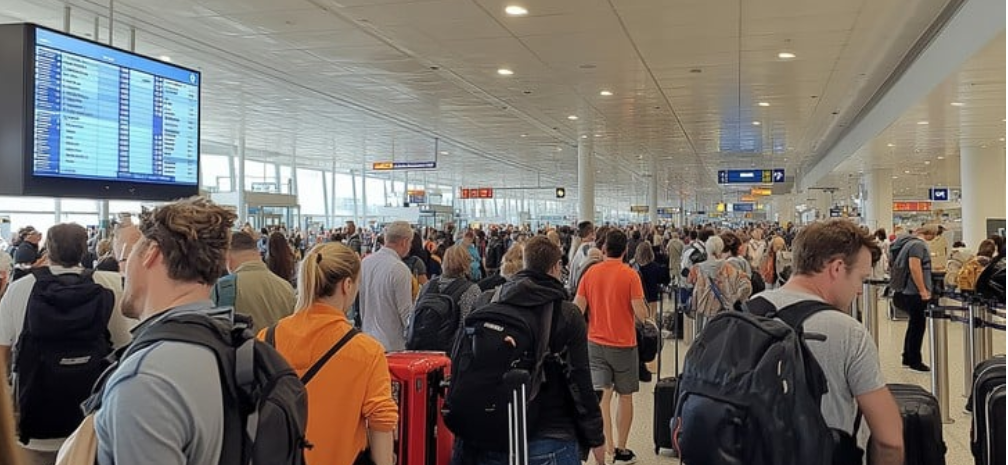A massive power outage across the Iberian Peninsula severely disrupted travel on April 28, 2025, grounding flights and halting public transport across Portugal and parts of Spain. As a member of the European Union, Portugal’s sudden grid failure sent ripple effects across major European air corridors, with connections to cities including Berlin, Brussels, London, Paris, Amsterdam, Zurich, Frankfurt, Warsaw, Malta, and New York severely impacted.
By late afternoon, aviation analytics firm Cirium reported 96 canceled outbound flights from Portuguese airports, with Lisbon’s Humberto Delgado Airport alone scrapping nearly 30% of scheduled departures.
Travel Chaos Across Europe
The blackout caused a cascade of flight cancellations, affecting both arrivals and departures across key EU and transatlantic routes. TAP Air Portugal, Ryanair, Delta, Lufthansa, and Brussels Airlines were among the hardest hit. Flights connecting Lisbon to JFK, Boston, Brussels, and Toronto were grounded, while outbound services to Paris, Frankfurt, Amsterdam, and Warsaw were also canceled.
Passengers were left stranded as airport operations slowed to a crawl. While air traffic control systems remained functional—thanks to backup battery and generator protocols—check-in counters, baggage systems, and boarding gates faced significant operational hurdles.
Safety Assurances Amid the Turmoil
Aviation safety experts emphasized that the outage did not compromise in-flight safety. Speaking to the BBC, aviation investigator David Gleave clarified that air traffic control centers are designed with redundancy: “If the power fails, a backup battery system activates within seconds, followed by diesel-powered generators that sustain all critical communications.”
Ground Infrastructure Under Strain
Public transport in Lisbon and other urban centers ground to a halt, with metro systems, buses, and suburban rail networks affected. With traffic lights out and tunnels closed, congestion choked city roads. Authorities urged residents to stay off the streets to ease access for emergency services.
Similar scenes played out in Madrid, where officials echoed warnings of ongoing instability. Despite backup diesel generators, the scale of the blackout overwhelmed many systems.
Conflicting Accounts on the Cause
Initially, Portuguese officials blamed a rare “atmospheric phenomenon” for destabilizing Spain’s electrical grid and disconnecting the Iberian Peninsula from the wider European network. However, this was swiftly disputed by Spain’s national weather service (AEMET) and meteorologist Roberto Brasero, who found no unusual weather conditions at the time (Huffington Post ES).
REN, Portugal’s national power operator, warned it could take up to a week to restore full functionality to the grid. Spain’s Prime Minister Pedro Sánchez convened an emergency National Security Council session and visited grid operator Red Eléctrica. Portuguese Prime Minister Luís Montenegro ruled out a cyberattack and called for calm.
Continued Disruptions Expected
With no immediate fix in sight, travelers are advised to monitor flight updates closely and remain flexible. Airlines are offering rescheduling without penalties, and emergency services continue to prioritize restoring power and mobility across affected regions.
As Portugal, a key EU member state, works to restore grid integrity, the incident underscores the fragility of interlinked infrastructure systems and their sweeping impact across borders.



